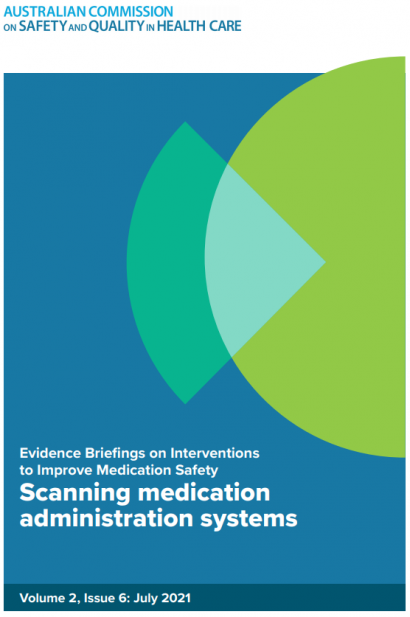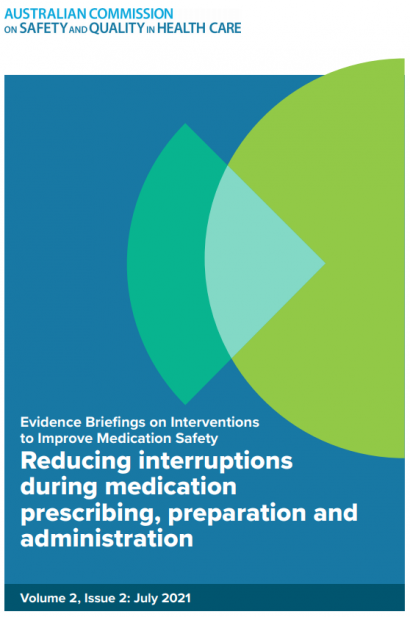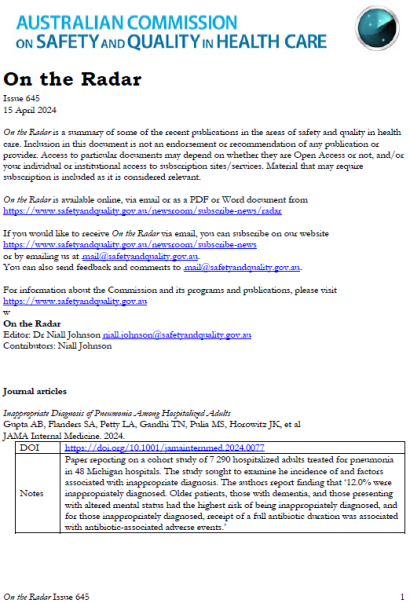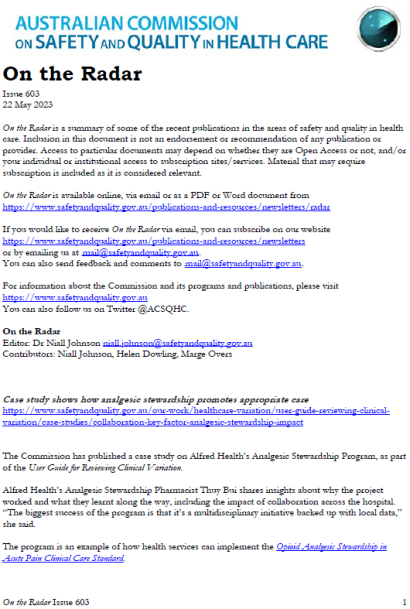Integrating clinical governance
Medication review
Applying quality improvement systems
Medication reconciliation means that the medicines the patient should be prescribed match those that are prescribed. Transition points of care are particularly prone to unintended changes in medication regimes and other medication errors.
Leaders of a health service organisation describe, implement and monitor systems to reduce the occurrence of medication incidents, and improve the safety and quality of medicines use. The workforce uses these systems.
A patient’s best possible medication history is recorded when commencing an episode of care. The best possible medication history, and information relating to medicine allergies and adverse drug reactions are available to clinicians.
A patient’s medicines are reviewed, and information is provided to them about their medicines needs and risks. A medicines list is provided to the patient and the receiving clinician when handing over care.
The NIMC reduces the risk of prescribing, dispensing and administration error through standardised presentation of medicines information for an individual patient. It also standardises the way medicines information is presented in all high-risk healthcare settings.
The Commission has developed guidance to address all aspects of medicine selection and storage that can affect the likelihood of medication error.
Organisation-wide systems are used to support and promote safety for procuring, supplying, storing, compounding, manufacturing, prescribing, dispensing, administering and monitoring the effects of medicines.
Health service organisations procure medicines for safety. Clinicians are supported to supply, store, compound, manufacture, prescribe, dispense, administer, monitor and safely dispose of medicines.
This page provides resources and a reference table of medication safety alerts, notices and guidance issued by the Australian states and territories and by international organisations using the APINCHS classification. There could be other more recent alerts, advice and guidance related to other medicines or practice areas which may be relevant to you or your organisation.
High-risk medicines
Medication errors are one of the most reported clinical incidents in acute health care settings and, while rates of serious harm are low, their prevalence is of concern particularly as many are preventable. A recognised major cause of medication errors is the use of potentially dangerous abbreviations and dose expressions.
Provision of a medicines list




